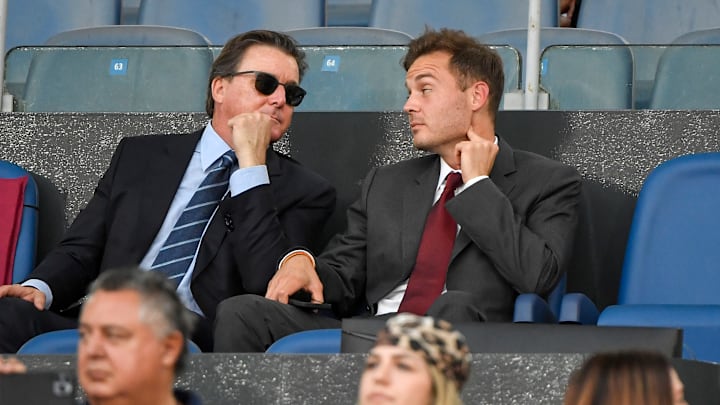When Crystal Palace won the FA Cup in May last year, the European stage was at the back of their minds, but now that the prospect is here, there’s a chance they could exit from the UEFA Europa League before starting.
This unexpected turn of events stems from UEFA's strict regulations against dual ownership, which prohibit two clubs with the same owner from participating in the same European competition to uphold sporting integrity and avoid conflicts of interest.
The issue for Crystal Palace emerged due to American businessman John Textor's significant minority stake in the Premier League side and his outright ownership of French club Olympique Lyonnais. With Lyon also securing a spot in the Europa League for the 2025/26 season, following their appeal from Ligue 1 relegation was successful, UEFA's multi-club ownership rules were triggered.
Despite arguments from Crystal Palace chairman Steve Parish that Textor's influence was limited at Selhurst Park, UEFA deemed the connection to constitute "decisive influence," leading to a ruling that Lyon, by virtue of their higher domestic league finish, would take the Europa League spot.
Fair or unfair? All for a missed email to not change post the deadline.
This decision means a demotion to the Conference League for Crystal Palace, a significant blow for a club celebrating its first major trophy in history and the promise of a Europa League adventure. Crystal Palace has confirmed they will appeal this ruling to the Court of Arbitration for Sport (CAS), fighting to reclaim their hard-earned Europa League berth.
While this situation at Crystal Palace poses its own challenges, it should also serve as a direct warning to Everton. If a similar scenario were to unfold on Merseyside, it could prove even more problematic, especially under the dual ownership of Friedkin Group.
This US-based conglomerate, owned by Dan Friedkin and his family, now boasts an expanding portfolio of football clubs, including Italian giants AS Roma and, as of December 2024, English Premier League side Everton. Roma have maintained a strong track record of qualifying for Europe, and with Everton aiming to follow suit under their new regime, conflict could arise.
Should both teams qualify for the Champions League or Europa League, one would be forced to step aside, likely being demoted to a lower-tier competition or excluded entirely.
Such an outcome would feel deeply unjust for whichever club is punished, especially after securing European qualification on the strength of their performances. While it may seem premature to talk about Everton in that context, optimism under new ownership is understandable.
If the club begins the Premier League campaign strongly and pushes toward the top six of the table, this issue becomes more than hypothetical. It’s a scenario that both UEFA and the Friedkin Group must address proactively, ensuring that sporting achievement isn’t undermined by ownership complications down the line.
